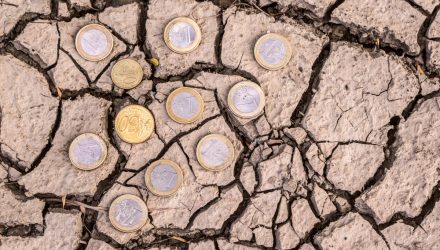The European Central Bank (ECB) has warned that climate change poses a risk to financial stability and could affect monetary policy.
”(It) is pretty obvious, climate change will have — has already — an impact on price stability, whether you look at climate related events, whether you look at particularly exposed areas, prices will be determined as a result of that,” European Central Bank President Christine Lagarde said remotely during the State of the Union conference, CNBC reports.
The ECB is undergoing a policy review of all aspects of its monetary policy, and climate change risks are also being considered in a report.
“The monetary policy space that is available will also be determined partly, not exclusively, but partly on climate change,” Lagarde said.
The central bank’s supervisory branch is also scrutinizing lenders in the region for how they are managing their climate-related risks.
“Although corporate asset purchases represent only a very small part of the overall portfolio of our monetary policy instruments, it is a part that is significant and where we have to ask ourselves: are we pricing risks properly, are we applying the right haircuts as a result, are we looking at disclosures that will be coming about soon, are we assessing the transition path and the financing needs that there will be, so I think that that will have an impact on the instruments that we use in the future and in the volume of each of those instruments as well,” Lagarde added.
Lagarde joins a growing number of leaders calling attention to the potential financial risks associated with climate change. For example, Kristalina Georgieva, the managing director of the International Monetary Fund, recently warned of the negative consequences from the increased frequency in natural disasters.
“When a country is hit by a natural disaster — and these disasters are becoming more frequent and more severe — then property is affected, production capacity of agriculture, of industry is affected, even the very financial institutions may be affected,” Georgieva told CNBC, adding that natural disasters could bring problems for mortgage owners and reduce the income that banks receive on a regular basis, ultimately leading to problems in the banking sector.
Valuation of companies could also be affected as we transition toward a low carbon economy.
“When we move from high to low carbon intensity, industries that are in that area of high intensity become less valuable, asset valuation changes and this shift, if it is abrupt, can be quite difficult for financial institutions,” Georgieva added.
For more news, information, and strategy, visit the ESG Channel.

